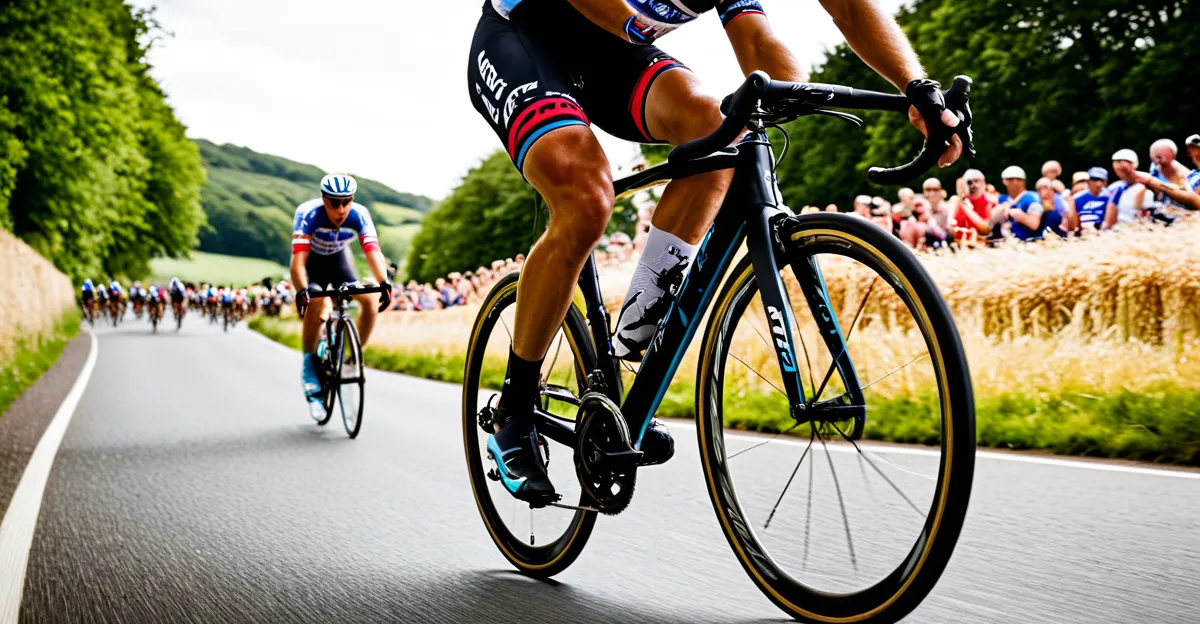Proven Training Regimens for UK Cycling Competitions
Training effectively for UK cycling competitions requires a thoughtful blend of UK cycling training techniques that specifically address the unique demands of typical British terrains. One of the most effective approaches integrates interval and endurance training, allowing riders to build both explosive power and sustained stamina. Interval sessions, consisting of high-intensity bursts followed by recovery periods, are particularly suited to tackling the stop-start nature of many UK courses, which feature frequent hills and variable surfaces. Meanwhile, extended endurance rides prepare cyclists for longer events and improve aerobic capacity.
Periodization is another cornerstone of optimizing performance. By structuring training into cycles—base, build, peak, and recovery—cyclists can align their preparation with the British cycling calendar. For example, shifting focus from endurance in winter months toward more high-intensity work as race season approaches maximizes performance gains. This strategic planning considers competition timing and ensures the body adapts progressively without burnout.
Also to read : What are the best sport bike brands available in the UK market?
Adapting training regimens to UK weather and seasonal conditions is crucial. The often wet and windy climate demands flexibility. Cyclists benefit from indoor workouts or turbo training on days when outdoor conditions are harsh, maintaining consistent progress without risking injury. Incorporating weather-appropriate gear during outdoor rides supports endurance during colder, wetter periods.
Focusing on these elements—integrated interval and endurance training, smart periodization, and weather adaptation—offers a comprehensive framework to elevate results in UK cycling competitions while managing the practical challenges of the environment.
In the same genre : How Can You Customize Your Sport Bike for UK Terrain?
Nutrition Strategies for Peak Cycling Performance
Maximizing energy and endurance starts with what you eat and drink.
Effective cycling nutrition UK plans focus on tailored fueling strategies that match the demands of your ride. Before a race, prioritizing complex carbohydrates provides sustained energy. Examples include wholegrain pasta, oats, or brown rice consumed 3-4 hours prior. This timing allows your body to fully digest and store glycogen, preparing muscles for intense effort.
During rides, especially long UK cycling events, maintaining steady carbohydrate intake is crucial. Many athletes use energy gels, bars, or electrolyte drinks to replenish calories and minerals lost through sweat. Hydration for cyclists must not be overlooked; even mild dehydration can reduce power output. Aim to sip fluids regularly, adjusting intake based on weather and individual sweat rate.
Post-ride nutrition supports recovery by combining protein with carbohydrates. This blend accelerates muscle repair and glycogen replenishment. A popular choice is a smoothie with fruit and whey protein taken within 30 minutes after cycling. Developing a hydration protocol around your training and racing conditions is equally important. For example, electrolyte-rich drinks prevent cramps during hot, humid days common across the UK.
Understanding these fueling strategies and hydration for cyclists enables optimization of performance at any level. Customizing nutrition before, during, and after events helps sustain energy, improve endurance, and speed recovery effectively.
Preparing Effectively for Race Day in the UK
Preparing effectively for race day is crucial to ensure peak performance and enjoyment in any UK cycling event. A comprehensive race-day preparation strategy starts with a well-organized UK cycling event checklist. This checklist should include essentials like your cycling kit, helmet, bike tools, nutrition, and hydration. Having these items ready well before race day helps avoid last-minute stress and ensures nothing important is forgotten.
Your pre-race routines are equally important. Arriving early allows time to complete final bike checks and familiarise yourself with the race environment. Performing a proper warm-up routine activates your muscles and enhances circulation, reducing the risk of injury and improving race readiness. Typical warm-ups might involve light cycling, dynamic stretches, and a few short sprints to raise your heart rate gradually.
Last-minute adjustments during race-day preparation, such as tyre pressure tuning or clothing tweaks, are common and can make a significant difference in comfort and performance. Always carry a small toolkit for emergency repairs and ensure your nutrition strategy aligns with your event duration and intensity. A solid race-day preparation is the foundation for a successful UK cycling event experience.
Mental Strategies and Focus Techniques
Maintaining a strong competition mindset UK is essential for cyclists facing the intense pressures of race day. Effective mental training cycling programs center on developing resilience and sharpening focus to navigate both physical and psychological challenges.
One key technique involves visualization, where riders mentally rehearse the race course and practice responses to potential setbacks. This preparation boosts confidence and minimizes anxiety by making unpredictable situations feel familiar. Additionally, controlled breathing and mindfulness exercises help cyclists remain calm and centered when adrenaline spikes.
Common mental barriers, such as self-doubt or fear of underperforming, can be mitigated by setting incremental goals. Instead of fixating on the overall outcome, focusing on maintaining pacing or technical skills during the race can keep the mind from wandering or collapsing under pressure. Psychological preparation also includes practicing positive self-talk to replace negative thoughts with affirmations that reinforce capability and endurance.
Building this psychological resilience is not a one-time event but a continuous process, often integrated into training routines. Combining strategies like mental imagery, focused breathing, and goal-setting empowers cyclists to maintain composure and maximize performance during critical moments of competition.
Choosing Equipment for British Cycling Standards
Selecting the right UK cycling gear and equipment is crucial for both safety and performance. To comply with British cycling standards, cyclists must ensure their bikes and accessories meet specific legal requirements. For instance, bikes should have front white lights and rear red lights when ridden at night, alongside reflectors on pedals and wheels to enhance visibility. Helmets, although not legally mandatory for adults, are highly recommended and often required in competitive events for added protection.
When selecting compliant equipment, look for UK-approved safety certifications. This includes checking for CE marks on helmets and reflective gear that aligns with UK regulations. Additionally, many UK courses feature wet and variable weather, so gear optimized for such conditions is highly beneficial. Waterproof clothing, durable tires with good grip, and fenders can significantly improve riding comfort and safety.
Regarding bike recommendations UK, road and hybrid bikes suited for local terrain are popular choices. These bikes balance speed with stability, ideal for the UK’s diverse courses ranging from urban roads to countryside trails. Investing in adjustable components, such as saddles and handlebars, helps tailor the bike fit to personal ergonomic needs while maintaining compliance with UK standards.
Focusing on UK cycling gear not only ensures safety but also enhances overall cycling experience under British conditions, making your rides smoother and more enjoyable.
Understanding British Racing Formats and Rules
An overview of UK cycling competition formats and race rules UK
UK cycling competitions follow specific British cycling guidelines that structure each event to test different skills and strategies. Among the most popular UK cycling competition formats are road races, time trials (TT), and criteriums, each with distinct characteristics.
Road races commonly involve multiple cyclists racing over long, often looped courses on open roads. These races emphasize endurance and teamwork while abiding by race rules UK that ensure safety and fairness. Time trials differ by pitting riders individually against the clock over a set distance; this format requires precision pacing and aerodynamic efficiency, and British Cycling provides clear regulations on equipment and rider conduct to standardize competition.
Criteriums are short, fast races held on closed circuits, demanding high-speed bike handling and tactical positioning. British Cycling guidelines strictly enforce conduct such as passing rules and sprint finish protocols to maintain order amid the intense pace.
Navigating these rules can be challenging, but British Cycling offers comprehensive materials detailing race rules UK that clarify everything from helmet use to drafting restrictions. Understanding and adhering to these standards not only promotes fair competition but also rider safety, making knowledge of British cycling guidelines essential for any participant.
Expert Advice and Common Pitfalls to Avoid
When competing in UK cycling events, following UK cycling expert tips can dramatically improve your performance and experience. Coaches and seasoned competitors emphasize the importance of preparation, consistent training, and understanding the course. For example, many experts advise beginners to focus on building endurance gradually rather than rushing into high-intensity rides. This approach helps avoid common beginner mistakes such as early fatigue or injury.
A frequent error in UK cycling competitions is neglecting proper bike maintenance. Competitors often overlook checking tire pressure and brake function before races, which can lead to mechanical issues mid-race. Another pitfall is poor pacing during events. Riding too fast at the start can cause a cyclist to burn out, while riding too conservatively might prevent achieving a personal best. Striking a balance by listening to your body’s signals and using pacing strategies recommended by UK cycling experts is crucial.
Lastly, many newcomers underestimate the mental aspect of competition. Confidence and strategic thinking, often highlighted in UK cycling expert tips, play vital roles in navigating challenges during a race. Being aware of these tips and avoiding typical pitfalls can elevate your cycling skills and lead to success in future UK cycling events.
Essential UK Cycling Resources and Communities
For cyclists in the UK, connecting with UK cycling clubs offers not only camaraderie but also access to organized rides, training sessions, and local expertise. These clubs range from competitive racing groups to recreational cycling teams, providing options for all skill levels. Joining a UK cycling club helps riders improve their technique and stay motivated through shared goals.
Online resources are crucial for staying informed and engaged. Popular forums and websites provide British cycling support through forums where members discuss routes, equipment, and cycling events. These platforms are valuable for finding local group rides, sharing tips, and troubleshooting common cycling challenges.
Additionally, official British cycling support comes from organizations that offer training programs, insurance, and advocacy for cyclists. Their resources include detailed guides on road safety, event calendars, and developmental pathways for those aiming at competitive cycling. Exploring these resources enhances a rider’s experience and fosters a well-rounded cycling lifestyle in the UK.


